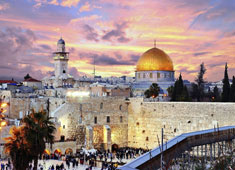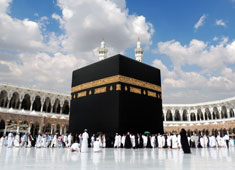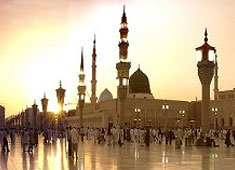Fatwas on Standing In Arafah

Fatwas on Standing In Arafah
- Departed from Arafah before sunset due to work commitments
Question: What is the ruling regarding one who made the Hajj and then departed from 'Arafah before sunset due to his work commitments?
Answer: According to a majority of the People of Knowledge, the one who departed from 'Arafah before sunset is required to make fidyah (ransom) except if he were able to return there during the night, then the fidyah (ransom) is not required. And the fidyah (ransom) is to perform a sacrifice and distribute it to the poor and needy in Makkah.
Shaykh Ibn Baaz
Fataawa al-Hajj wal-'Umrah waz-Ziyaarah - Page 96
- The Day of 'Arafah (9 Dhul-Hijjah) falling on a Friday
Question: Some people say that if the Day of 'Arafah (9 Dhul-Hijjah) falls on a Friday, then it is as if someone has performed 7 Hajjs (i.e. he is rewarded as having done so). Is there any evidence from the Sunnah regarding this?
Answer: There is no authentic evidence regarding this. (However), some people (also) believe this equates to (having performed) 70 Hajjs or 72 Hajjs, and this is also incorrect.
The Permanent Committee for Islaamic Research and Fataawa, comprising -
Fataawa al-Lajnah ad-Daa.imah lil-Buhooth al-'Ilmiyyah wal-Iftaa. - Volume 11, Page 211, Question 3 of Fatwa No.7890
- Offering supererogatory prayers after Salaat az-Zhuhr and Salaat al-'Asr
Question: Is it permissible for the one performing Hajj to perform supererogatory prayers after having offered Salaat az-Zhuhr and Salaat al-'Asr with the imaam on the Day of 'Arafah (9 Dhul-Hijjah) until the time of sunset.?
Answer: The Messenger (sal-Allaahu `alayhe wa sallam) did not perform any supererogatory prayers on the Day of 'Arafah after having offered Salaat az-Zhuhr and Salaat al-'Asr combined and at the time of Zhuhr (jam'u taqdeem). And if it was legislated then he would have been more careful about performing them than us, and good and all good is in adhering to following his Sunnah.
And with Allaah lies all success and may Allaah send prayers and salutations upon our Prophet (sal-Allaahu `alayhe wa sallam) and his family and his companions.
The Permanent Committee for Islaamic Research and Fataawa, comprising -
Fataawa al-Lajnah ad-Daa.imah lil-Buhooth al-'Ilmiyyah wal-Iftaa. - Volume 11, Page 212, Question 3 of Fatwa No.7894
- The ruling regarding calling Jabal Arafah Jabal ar-Rahmah
Question: They call Jabal 'Arafah (Mount of 'Arafah) Jabal ar-Rahmah (Mount of Mercy), so what is the ruling regarding this name and is there any basis for this?
Answer: I do not know of any basis for this name from the Sunnah, that the mount which is in 'Arafah at which the Prophet (sal-Allaahu `alayhe wa sallam) stood is called Jabal ar-Rahmah. If there is no basis for it in the Sunnah then it is not befitting to apply this (name) to it. Those who have applied this name, then they have possibly observed that this is a great (standing) place which is recognised as a place of Allaah's Forgiveness and Mercy for those standing upon it in 'Arafah. Therefore, they named it such. So that which is better is to not call it by this name, rather, call it Jabal 'Arafah, or the mount at which the Prophet (sal-Allaahu `alayhe wa sallam) stood or that which is similar to this.
Shaykh Ibn 'Uthaymeen
Daleel al-Akhtaa.a yaqa'a feehaa al-Haaj wal-Mu'tamir wat-tahdtheer minhaa - Page 69
- The ruling regarding visiting Jabal Arafah either before Hajj or afterwards
Question: Some pilgrims visit Jabal 'Arafah before performing the Hajj or afterwards and pray upon it (at the peak). What is the ruling regarding visiting Jabal 'Arafah and what is the ruling regarding praying upon it?
Answer: Its ruling is as is known from the Sharee'ah ruling and that is that anyone who worships Allaah in a manner that has not been legislated, then he is an innovator. So it is known from this that he who has intended to pray on Jabal 'Arafah or at the bottom or just touch it or similar to this, which some people do, is an innovation which is disliked and frowned upon. It is said to him: There is nothing special about this mount except that it is a Sunnah for a person to stand at the rocks on the Day of 'Arafah (9th of Dhul-Hijjah), just as the Prophet (sal-Allaahu `alayhe wa sallam) stood at it. The Prophet (sal-Allaahu `alayhe wa sallam) stood near the rocks and said:
(I have stood here, however, all of 'Arafah is a standing place)), [Saheeh Muslim].
So based upon this, it is also not befitting for a person to cause difficulty for himself on the Day of 'Arafah by going to the mount and possibly causing difficulty for his people. Thus, getting tired from the heat and thirst , by doing so, is sinning because he has caused difficulty in a matter which Allaah has not made obligatory for him.
Shaykh Ibn 'Uthaymeen
Daleel al-Akhtaa.a yaqa'a feehaa al-Haaj wal-Mu'tamir wat-tahdtheer minhaa - Page 69
- Is the standing in Arafah of one who is unconscious valid?
Question:If a person falls unconscious before ‘Arafah, then he is carried to ‘Arafah on the day of ‘Arafah when he is unconscious, is his Hajj valid even if he is not aware?.
Answer:The scholars -- may Allah have mercy on them -- have stated that the standing in ‘Arafah of one who is unconscious is valid. If a person falls unconscious before dawn breaks on the day of ‘Arafah and does not wake up until after dawn on the day of Sacrifice, and he is in ‘Arafah and has stood or stayed in ‘Arafah, then his Hajj is valid.
Majmoo’ Fataawa Ibn ‘Uthaymeen, 23/21
- A pilgrim died in ‘Arafah; is there any need to complete Hajj on his behalf or to do it all over again on his behalf?
Question:A man died during the Hajj after standing at ‘Arafah. Is there any need to complete Hajj on his behalf or to do it all over again on his behalf?.
Answer:Hajj need not be done on his behalf, because he has done what was required of him. When the Prophet (peace and blessings of Allaah be upon him) was asked about a man who was thrown by his she-camel in ‘Arafah, he (peace and blessings of Allaah be upon him) said to them: “Wash him with water and lotus leaves, and shroud him in his two garments, and do not put perfume on him or cover his head, for he will be raised on the Day of Resurrection reciting the Talbiyah.” And he did not say to complete the Hajj on his behalf.
Majmoo’ Fataawa Ibn ‘Uthaymeen, no. 1063 (23/31).













 TUNIS
TUNIS Casablanca
Casablanca




 France
France Morocco
Morocco Saudi Arabia
Saudi Arabia Tunisia
Tunisia